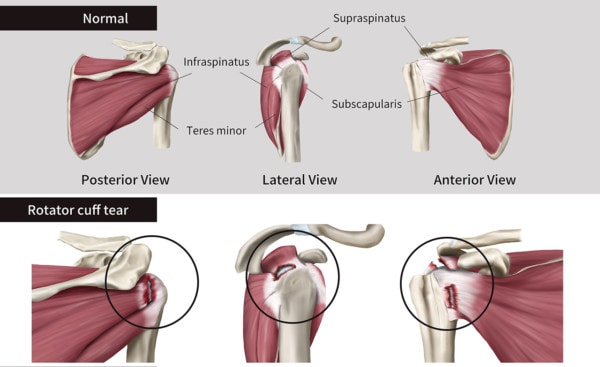Shoulder Rotator Cuff Surgery Research Review: Does Surgery Work Better than No Surgery?

Chu KyungMin/Shutterstock
You might think that with about 40,000 shoulder rotator cuff tear repair surgeries performed in the United States each year, that there was solid medical evidence supporting that this type of shoulder surgery was effective. However, a recent published review by Agency for Healthcare Research and Quality looked at more than 150 published papers and concluded that there was no solid evidence that rotator cuff surgery benefited patients more than no surgery.
Huh? We’re operating on shoulders at a furious pace and we don’t know for sure whether the operations help patients more than not operating? Medicine is like any other field, at some point an idea takes hold and spreads like wildfire. In this case the idea was that sewing the torn shoulder rotator cuff back together was a good idea. It may still be in some patients.
However, sewing a shoulder rotator cuff tear means prolonged immobilization as you have to substantially weaken the area through shoulder surgery before you can get it to heal. This type of long-term inactivity for the rotator cuff muscles and tendons can lead to shoulder rotator cuff atrophy and/or a weaker, but healed rotator cuff tendon. Add to that research showing that many patients never regain full range of motion after a shoulder rotator cuff tear surgery, likely due to the same immobilization and prolonged bracing needed to get the shoulder rotator cuff to heal, and it starts to make sense that the research doesn’t support that shoulder surgery is more effective than no shoulder rotator cuff tear surgery.
So what to do? Shoulder surgery or no shoulder surgery? We tell our patients that if you have a massive tear and have otherwise good healthy tissue and are an active person who will benefit from working rotator cuff muscles, then surgery may be your best option. However, on the other hand, if you have a partial rotator cuff tear or a full thickness rotator cuff tear without retraction (the two ends pulled apart), then you should consider non-surgical injection based repair rotator cuff strategies rather than shoulder surgery. These injections allow the patient to be more active during recovery and hopefully this increased activity will allow the patient to have a stronger and more functional shoulder rotator cuff repair when compared to a more invasive shoulder surgery.

If you have questions or comments about this blog post, please email us at [email protected]
NOTE: This blog post provides general information to help the reader better understand regenerative medicine, musculoskeletal health, and related subjects. All content provided in this blog, website, or any linked materials, including text, graphics, images, patient profiles, outcomes, and information, are not intended and should not be considered or used as a substitute for medical advice, diagnosis, or treatment. Please always consult with a professional and certified healthcare provider to discuss if a treatment is right for you.
